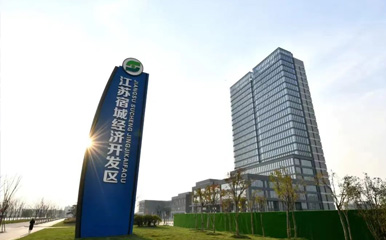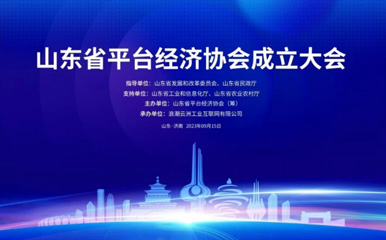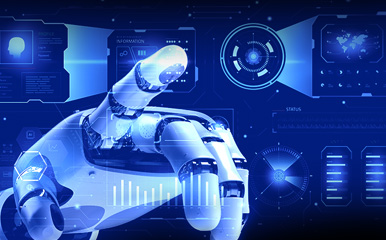
With the booming development of the digital economy, digital technologies have fostered new industries, new business models, and generated a large number of digital professions. In recent years, Jiangsu has promoted the transformation and upgrading of enterprises, actively cultivating future industries such as artificial intelligence and humanoid robots, while also carrying out digital vocational skills training, setting up competitive stages, and increasing subsidies to allow digital professions to provide more new employment opportunities.
In 2022, the scale of China's digital economy exceeded 50 trillion yuan, ranking second in the world in total, accounting for 41.5% of the GDP. With its vigorous development, the digital economy has comprehensively penetrated and profoundly influenced all aspects of production, circulation, and consumption, fostering a batch of emerging digital professions.
What are the digital professions in Jiangsu? What policy support have they received for their development? Recently, reporters interviewed the digital professions community.
Birth - The Development of the Digital Economy Spurs the Rise of Digital Professions
At 10 a.m., Yang Ailun, an artificial intelligence video editor engineer from Nanjing Silibase Intelligence Technology Co., Ltd., arrived at his workstation, turned on the desktop computing server, clicked into the "Digital Human Short Video Platform," gathered data from the cloud, trained and rendered the data, and began his day's work.
A brand merchant sent a recorded video, requesting the generation of "digital avatars" with different personalities. Yang Ailun first checked if the video was qualified. "First, the person in the video needs to speak, second, the background should not have elements with significant displacement, and additionally, the face should not be obstructed." Yang Ailun introduced that after the video is qualified, the first step is to import the audio and video into computer software for preprocessing, allowing the system to automatically identify and analyze facial and voice features, capturing the lip movement and voice changes of each frame of speaking to form a "big data set" for deep learning inference.
Yang Ailun explained that the "digital human" large model established through this process, after pre-training, can highly restore the audio and video of the client's text messages to the speaking state of the person.
"In the early stage, the work of an artificial intelligence video editor engineer is to develop a large model. This product was launched in 2020, with hundreds of thousands of users generating tens of millions of 'digital human' short videos online every year." Yang Ailun introduced that his current work focus is to input more images and videos into the large model, training it to understand the content of multiple scenarios and industries, thereby developing more digital human characters and new professions. Last year, their team newly launched an "interactive digital human" platform, extending the "digital avatars" of professions such as lawyers, teachers, and doctors, used for public welfare occasions and benefiting the people.
For Yang Ailun, the most fulfilling thing about his job is that it helps promote the development of other industries. For example, in the manufacturing industry, "digital humans" can not only be applied to front-end customer service and back-end maintenance, but also serve as operational guidance for real-time response to mechanical equipment. Since 2023, the image of "digital humans" has helped thousands of small shops set up online live streaming rooms in Nanjing's "Small Shop Plan," supporting the recovery and development of the consumer industry.
Xue Yong, the director of the Employment Promotion Department of the Jiangsu Provincial Department of Human Resources and Social Security, introduced that in 2021, Jiangsu issued the "14th Five-Year Plan for the Development of the Digital Economy in Jiangsu Province" to stimulate new momentum in the digital economy and accelerate the construction of a strong digital economy province. With the booming development of the digital economy, digital technologies have deeply empowered various industries, fostering new industries, new business models, and generating a large number of digital professions. In the "Classification of Occupations in the People's Republic of China (2022 Edition)" revised and released by the Ministry of Human Resources and Social Security in 2022, 97 digital professions, including robot engineering technicians, digital solution designers, and digital twin application technicians, were marked. Jiangsu, with its developed manufacturing industry and rapid transformation and upgrading, has fostered a large number of digital professions in the fields of artificial intelligence, industrial internet, and manufacturing services.
Development - Enterprise Transformation and Upgrading Drive the Development of Digital Jobs
"Beep beep beep..." At 8 am, Gu Jianwei, an equipment data diagnostician from the Special Steel Business Department of Yongzhuo Holding's steel sector, received a warning push notification on his phone. He opened the equipment management system on his computer, where 229 production equipment in the special steel production line, including blooming machines, continuous rolling mills, and hot saws, were lined up on the screen through digital twin technology. By clicking on each piece of equipment, he could also see real-time data such as temperature, vibration, and current. At that moment, the temperature of Pump No. 3 was abnormally high and issuing an alarm. After a preliminary analysis of the data, it was likely that the motor cooling fan had malfunctioned. Gu Jianwei immediately notified the field engineer to go and handle it, avoiding a large-scale shutdown loss caused by motor burnout.
Before 2019, Gu Jianwei served as an equipment manager in the company. Besides conducting daily inspections on 229 pieces of equipment every morning, he also had to dismantle and replace old equipment with new ones strictly according to their service life. "Every time we maintain equipment, we have to consult a large number of inspection records and historical information, which not only leaves blind spots in inspection but also makes it difficult to accurately predict future production trends," Gu Jianwei told reporters. In 2019, as the company promoted digital development, his original position was eliminated, and a new position for equipment big data classification and management took its place.
"Through digital diagnosis, we can discover and solve problems in the first instance, and determine the service life of each piece of equipment based on real-time 'check-ups', ensuring that they do not operate with defects while tapping into their potential, achieving full-cycle management," Gu Jianwei explained. Since the company has promoted digital transformation, over 100 digital jobs such as equipment data diagnosticians and equipment data analysts have been "upgraded," with a total of more than 500 people.
Apart from the "digital upgrade" in the transformation and development of traditional industries, in Jiangsu, digital jobs also emerge from "nothing" in future industries.
Welding, polishing, handling... In the sparkling production workshop of Changguangxi Intelligent Manufacturing (Wuxi) Co., Ltd., located in the Binhu District of Wuxi City, the conveyor belts run at a fast pace. On the interconnected assembly positions, robots work closely together, swinging their long arms to assemble various parts into cars.
One of the designers of these robots is software algorithm engineer Lin Jianxiong. On his workstation, two computers are "running data," with rows of matrices, codes, and formulas filling the screens. Lin Jianxiong explained that he needs to master the technical foundations, underlying codes, and process engineering of each stage of product development. To improve the autonomous decision-making ability of robots, he and his team continuously enhance the product's perceptual capabilities, achieving a higher level of intelligence and autonomy.
As an important carrier of new-quality productive forces, robots have attracted much attention. "Binhu District actively deploys and cultivates future industries such as artificial intelligence and humanoid robots, recruiting us as a key enterprise to settle here," said Tang Zepeng, the company's channel director. As the robot industry enters a period of development opportunities, the company has set up new positions such as software algorithm engineers and robot technical support engineers to accumulate technology and respond to market and social needs.
Support - Conducting Skills Training and Building Competitive Stages
Recently, the 7th Jiangsu Skills Champion Competition concluded, with Cai Mengqi, an employee from Xuzhou Heavy Machinery Co., Ltd. of XCMG Group, winning the second prize in the "Industrial Vision System Operation and Maintenance" category of the staff group. "This is the best affirmation of my career," said the 21-year-old young man while busy with his work.
In recent years, Cai Mengqi's company has been in a period of transformation and upgrading, with a number of digital pilot factories being built. The company's employee capability structure urgently needs to be transformed, facing the adjustment and transition of new positions. Earlier this year, Cai Mengqi, who worked on the assembly line, and another commissioning worker were selected by the company to participate in industrial vision system operation and maintenance skills training organized by the Xuzhou Construction Machinery Technician College. Over the past two months, he systematically studied courses such as industrial camera configuration and external device communication, understanding the role of new industrial vision positions in intelligent development. In March this year, he also participated in project training organized by the Provincial Department of Human Resources and Social Security, further improving his practical skills in industrial cameras. In April, he participated in the provincial vocational.















